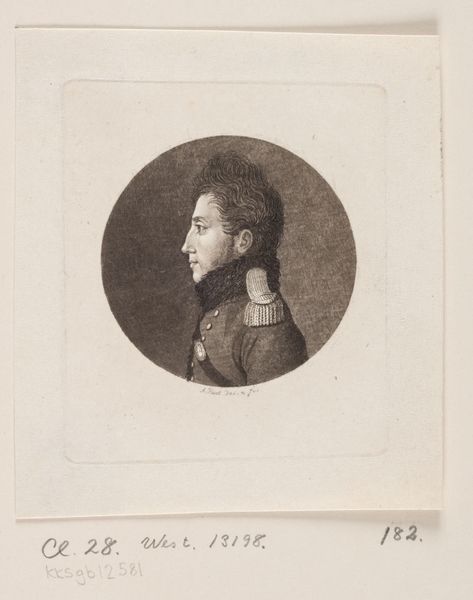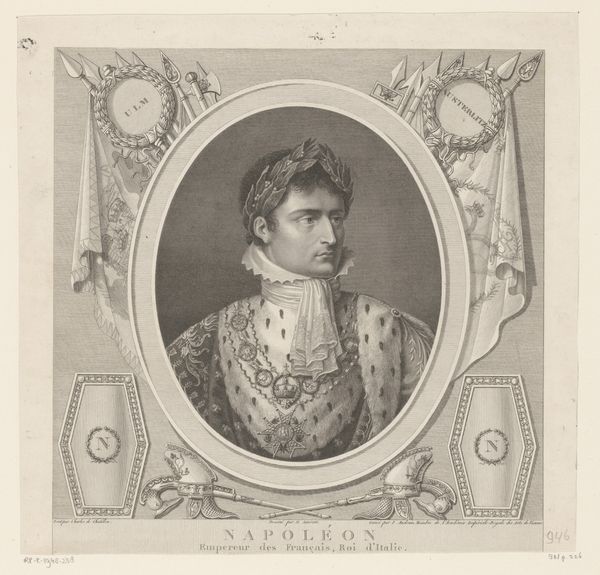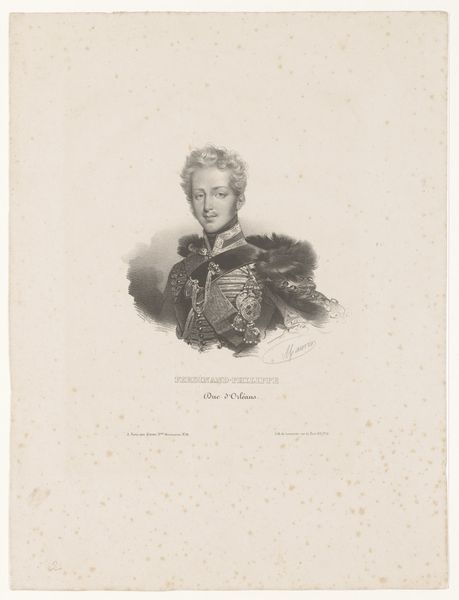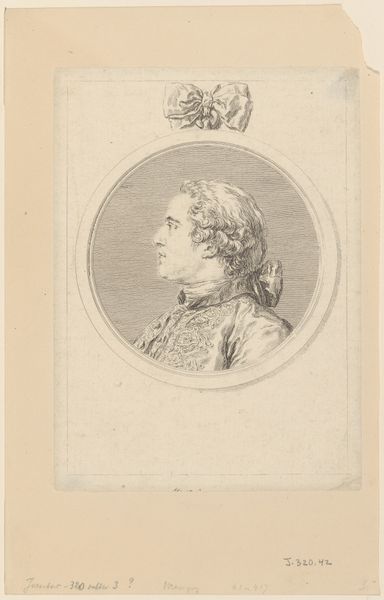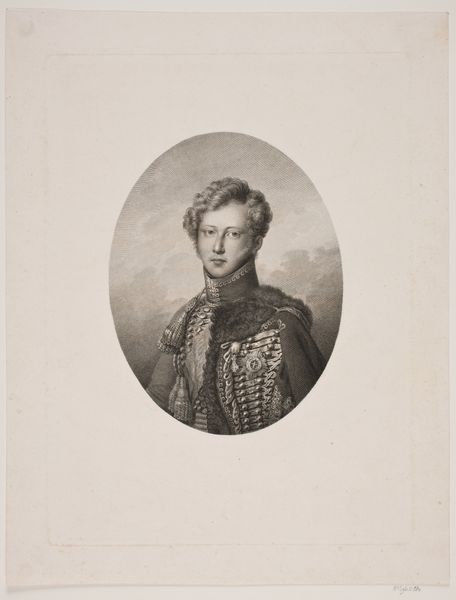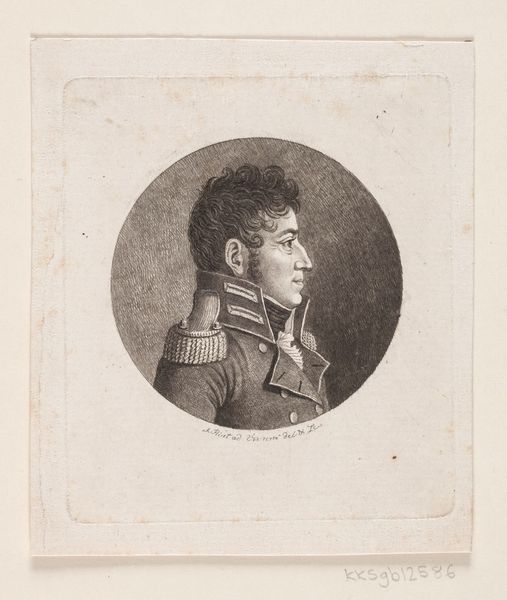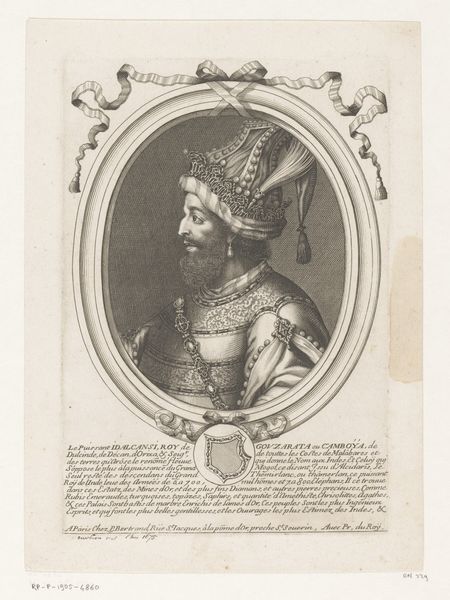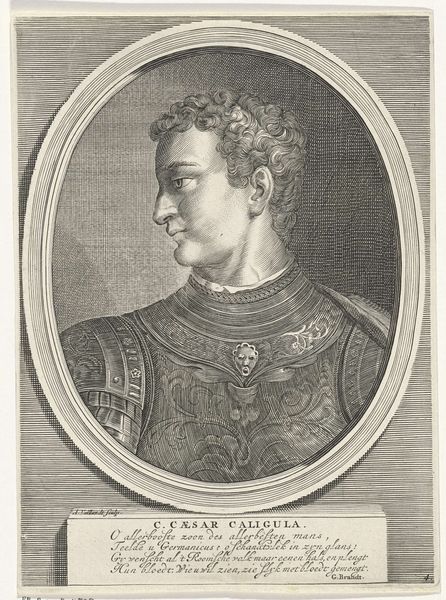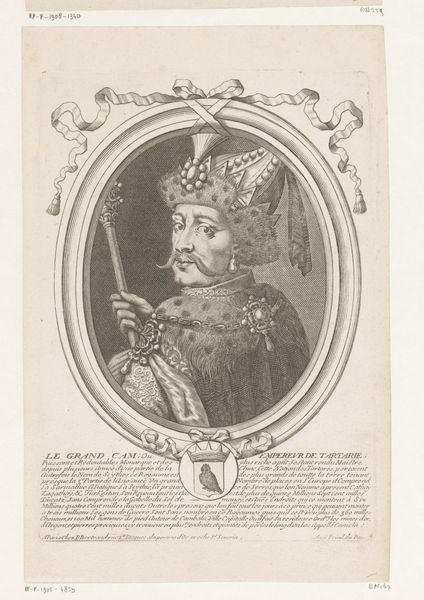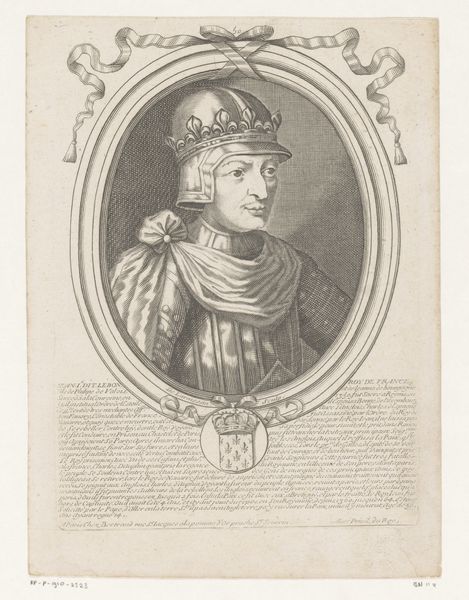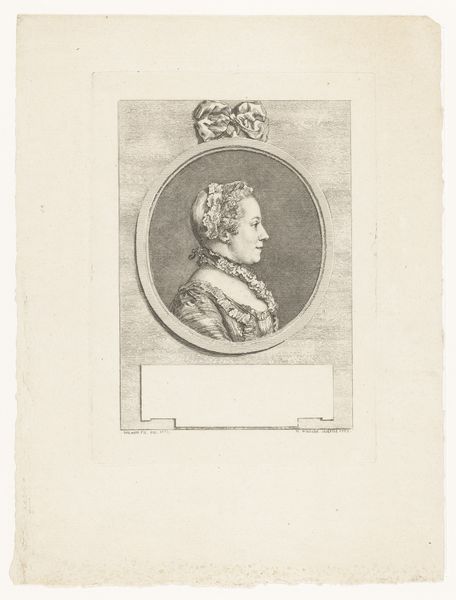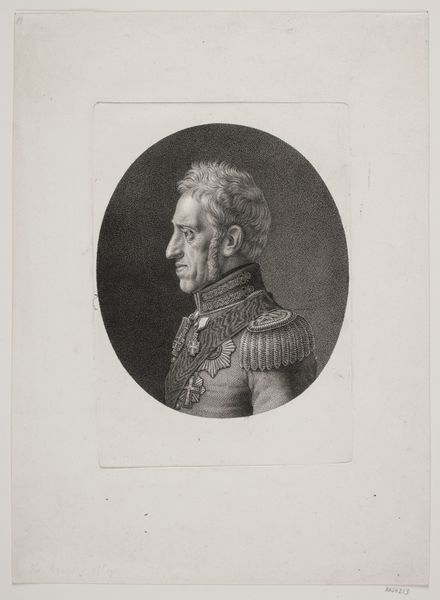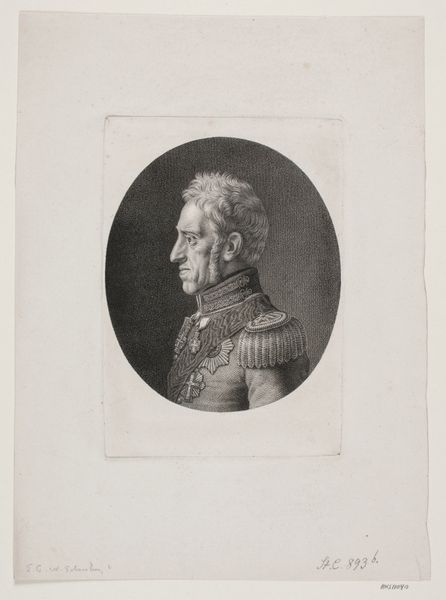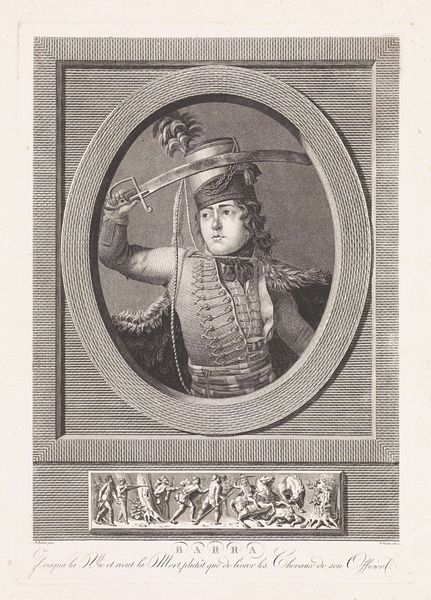
print, engraving
#
portrait
#
neoclacissism
# print
#
old engraving style
#
history-painting
#
engraving
Dimensions: 62 mm (None) (billedmaal), 87 mm (height) x 72 mm (width) (plademaal)
Here we have an etching by Andreas Flint, made sometime in the late 18th or early 19th century. It depicts an unknown man in profile, set against a circular backdrop. Notice how the artist uses the stark contrast of light and shadow to define the subject’s features and military attire. The etching's structure, with its meticulous lines and tonal variations, invites us to consider the semiotics of portraiture during this period. The formal elements—the subject’s posture, clothing, and hairstyle—function as signifiers of status and identity, creating a visual language of power and social standing. Flint’s strategic arrangement of these elements within the frame serves to uphold or perhaps subtly question established hierarchies. Consider how the circular frame interacts with the subject's linear profile, creating a tension between containment and projection. Does this compositional choice reinforce or undermine the subject’s authority? Ultimately, Flint's etching prompts us to reflect on the dynamic interplay between artistic form, cultural codes, and the fluid construction of meaning.
Comments
No comments
Be the first to comment and join the conversation on the ultimate creative platform.
